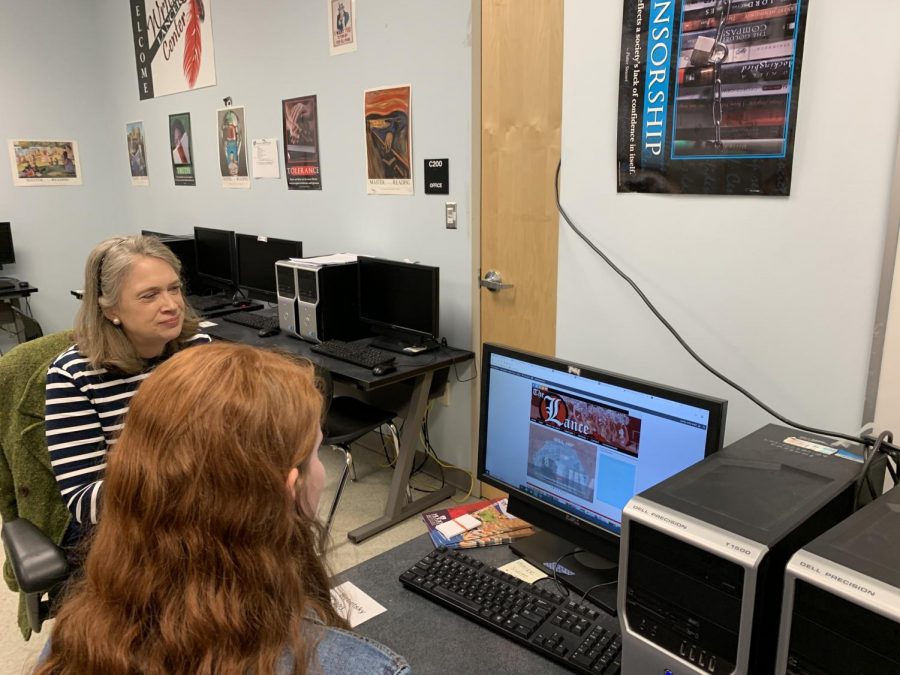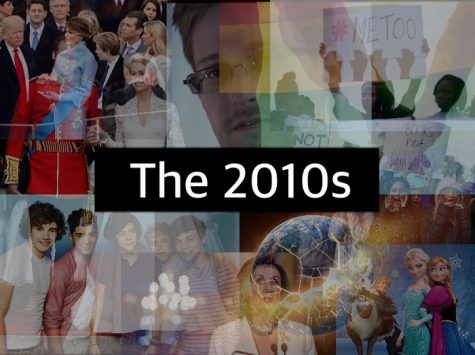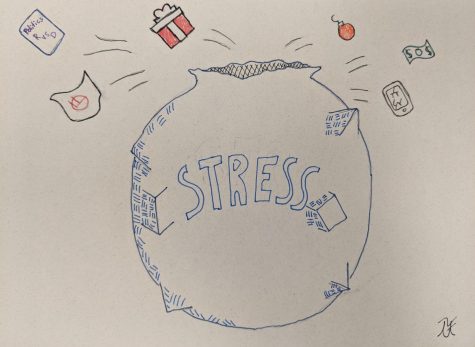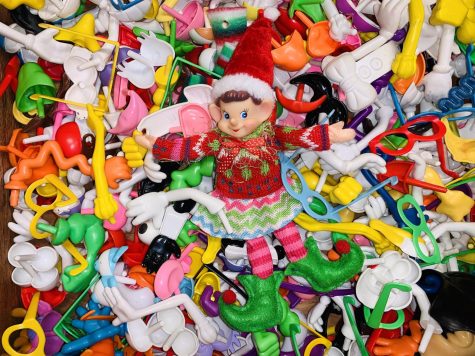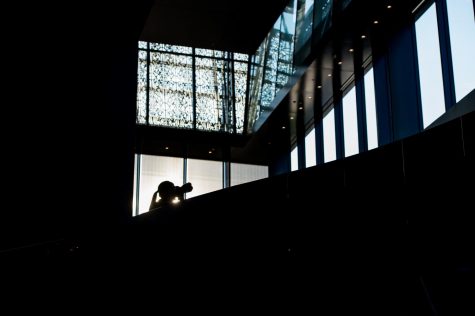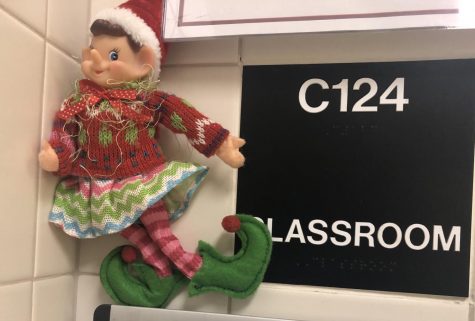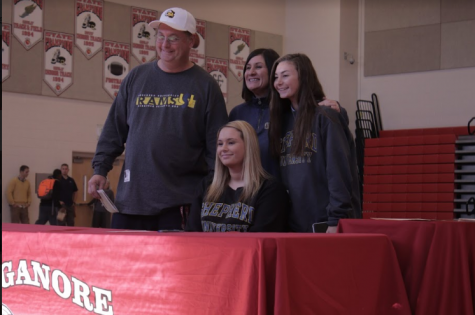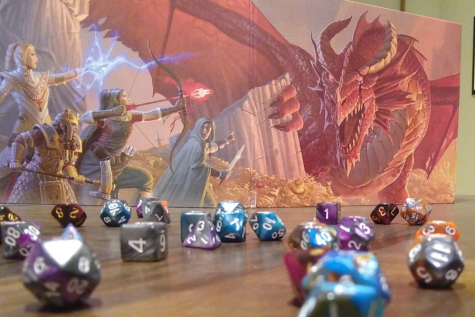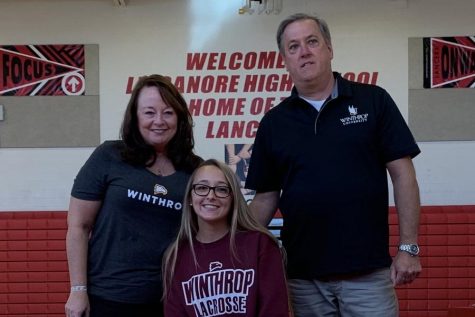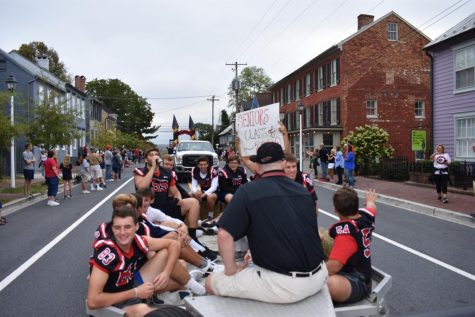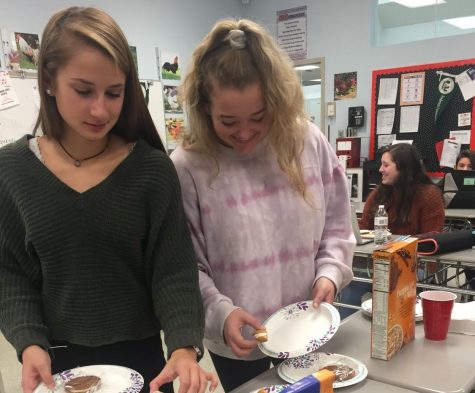Dr. Elizabeth Atwood encourages Lancer Media journalists to plan for future
Editor Emily Webb shows Dr. Elizabeth Atwood The Lance website.
January 21, 2020
Dr. Elizabeth Atwood, Associate Professor of Journalism at Hood College, visited Lancer Media to talk about the journalism program at Hood and to get an understanding of what high school journalism looks like today. She is the college’s adviser of the Blue and Grey newspaper, produced by students in the journalism club. She spent 30 years in the newspaper business as a reporter and editor before becoming a professor.
“Personally, I loved to write. I used to write short stories after work at sixteen years old. I remember having a talk with myself to figure out who would pay me to do what I love: to write stories. Then it dawned on me. Journalism is where people would pay me to write,” Atwood said.
After telling some of her career history and personal stories, the editors in the class spent about 30 minutes demonstrating various areas of expertise. Atwood was impressed by the efficiency of the student newspaper staff. She hopes to transform the club level newspaper at Hood into a class, and some of the way that Lancer Media produces The Lance will transfer to Hood.
Atwood attended West Virginia University and earned her degree in journalism. But she wasn’t done. She then went to the University of Virginia for a Master’s in History. Later, Atwood decided to go back to school to get her PhD in International Journalism at the University of Maryland, College Park.
For 22 years, Atwood worked with Baltimore Sun. She started as a reporter and editor and then reached the position as a General Assignment Editor for the paper’s print and online editions.
Atwood believes journalism is essential to democracy. “Journalism makes you go out and talk to strangers and interview them. When I was taking journalism classes, I found that journalism plays an important role in society and democracy. It became clear to me that journalism was a place to write but also a calling to be able to write important stories.”
Student Peyton Johnson really was intrigued by Atwood’s outlook on the way journalism is important.
“She[Atwood] said that newspaper subscriptions were going down and how people didn’t want to pay money to read stories. She gave good points as to why journalism should be kept alive.”
During the interview, Atwood talked about the struggles that journalists are facing. She focused on how many newspapers are losing money and how the Baltimore Sun had to lay off many people, which was the catalyst to turn her in the direction of becoming a professor.
“The internet made things worse. It’s not because people are reading on the internet. It’s because the ads went to the internet. Most of the money comes from the ads,” Atwood said.
“In 2009, there was a big lay off, and many people needed an alternative plan. I thought I should start thinking about having a backup plan, I survived the lay off,but I wanted a change. I saw the offer at Hood to be the adviser of the newspaper, so I took it.”
Atwood interest in history extends to summer research. Every summer, one student is given a grant of $3000 to do a research with their professor. One project that Atwood and a student completed over the summer two years ago was research about Marguerite Harrison, an American spy during World War I and a reporter for the Baltimore Sun.
“We interviewed her [Marguerite Harrison’s] granddaughter, her writings and prison files, and the letter’s in the National Archives. It’s [the research] all going to be a book,” Atwood said.
After Atwood returned to Hood, students and Mrs. Natalie Rebetsky discussed the possibility of a field trip to Hood to see their classes, tour the campus and look at the Blazer Radio studios.


